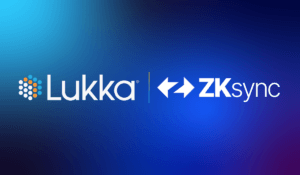THE INFORMATION CONTAINED IN THIS BULLETIN (THIS “BULLETIN”) PROVIDES ONLY A GENERAL OVERVIEW OF CURRENT TAX AND/OR ACCOUNTING ISSUES RELATED TO DIGITAL CURRENCIES AND IS NOT INTENDED TO BE CONSTRUED AS STATEMENTS OF FACTS. ALL INFORMATION CONTAINED IN THIS BULLETIN IS PROVIDED “AS IS,” WITH NO GUARANTEE OF COMPLETENESS, ACCURACY, AND TIMELINESS OR OF THE RESULTS OBTAINED FROM THE USE OF THIS BULLETIN.
Author: Suzanne Morsfield, Global Head of Accounting Solutions
What it could mean for other public companies holding crypto assets?
In business media reporting over the past week, a SEC letter to Microstrategy about specific aspects of its crypto assets reporting was one of the topics of discussion. Some headlines even suggested that the crypto accounting may have been incorrect. The letter raises questions for those closely watching rules and regulations evolve for crypto reporting.
Since the current accounting classification for many crypto asset holdings is indefinite-lived intangible assets, impairment losses must be recognized, if relevant; and, under US accounting standards these losses can never be written back up should the fair value recover while the entity still holds the assets. This means that holdings under US GAAP may be understated as compared to the fair value that a holder could receive as of the reporting date.
As a result, many SEC filers with crypto asset holdings use their Non-GAAP reporting to highlight this difference.
Crypto Non-GAAP on the chopping block for all SEC filers?
It is important to clarify that the SEC objected to the way Non-GAAP reporting was handled, not Microstrategy’s GAAP accounting. The full context is important here. Non-GAAP adjustments are relatively common, but global regulators and investors continue to seek greater consistency and transparency around them.
Nicola White of Bloomberg reports about this Non-GAAP reporting issue in some detail1. She rightly addresses the question of why Microstrategy’s Non-GAAP measures drew a strong response from the SEC, when other public entities, including those with crypto asset impairment adjustments, appear to be able to continue such reporting as usual.
Did the SEC intend to signal to all public companies that they should not include a crypto asset impairment adjustment in their future Non-GAAP measures? Those interviewed by Bloomberg suggested that the restriction may well be specific to Microstrategy. However, the SEC gave no specific reason for the objection to Microstrategy’s approach, and many wonder if this new restriction will be required for all SEC filers.
Will the SEC’s move on Microstrategy’s Non-GAAP adjustments virtually stop them from communicating to its investors information about the ending fair value of its crypto asset holdings?
Less crypto asset information for investors?
A week later, concerns raised by the SEC’s Non-GAAP decision continue to be discussed. Notably, reporting teams at public companies need to know if this action directed at Microstrategy limits the information that all crypto asset holders can provide to investors, especially about the fair value of their holdings as contrasted with the related carrying valuing?
It appears that this is not actually the case.
In the same October 7, 2021 letter in which the SEC sought an explanation of the Non-GAAP reporting for crypto asset impairments, it also mandated that new disclosures be added to the MD&A. Among other things, the ending fair value is now an actual requirement for Microstrategy, rather than a potentially optional amount provided via Non-GAAP adjustments.
The entire list of what the SEC now requires from Microstrategy in its future MD&A disclosures should provide investors with more information about its crypto assets, not less. The text from the SEC letter details an expanded list of what must now be disclosed by Microstrategy:
“To provide greater transparency in future filings for your bitcoin acquisition strategy line of business, please include a tabular presentation in MD&A with the following entries (as of the end of the period covered by the periodic report): number of bitcoins held, number of bitcoins purchased during the period covered by the report, number of bitcoins sold during the period covered by the report, average purchase price per bitcoin purchased during the period, average sales price per bitcoin sold during the period, source of capital used to purchase bitcoins during the period, high and low value of bitcoin holdings during the period and value of bitcoin holdings at the end of the period.”
This fuller list helps make the case that the SEC added more information than it seemingly took away. All reporting entities, whether public or private, would be wise to assess with their accounting advisers whether the new Microstrategy mandates are required, or even just useful, to their investors for current or future reporting seasons.
How hard would it be for all SEC filers to meet the new reporting mandates?
The crypto asset ecosystem brings challenges specific to financial and tax reporting. Fair value and principal markets can be difficult to determine. Markets never close or are fragmented, and the data needed may not be standardized or easy to access. And, impairment assessments are just one US GAAP calculation that relies on estimating reliable, consistent fair values.
Lukka’s data and software is built for such institutional reporting. It meets AICPA SOC 1 and 2 Type 2 standards among those of other trusted frameworks, making the new MD&A reporting easy for its customers. Our accounting-aligned data and software solutions enable the assignment of fair value, they address the intricacies of crypto principal markets, can apply impairment to crypto assessments, and much more to help solve several of the most complex data challenges for businesses with crypto asset reporting needs that are aligned with US GAAP and IFRS guidelines.
- White, Nicola M. “Size of MicroStrategy’s Bitcoin Bet Set Off SEC Accounting Alarm.” Bloomberg Tax, 25 Jan. 2022, https://news.bloomberglaw.com/financial-accounting/size-of-microstrategys-bitcoin-bet-set-off-sec-accounting-alarm. Accessed 25 Jan. 2022.
THE INFORMATION CONTAINED IN THIS BULLETIN PROVIDES ONLY A GENERAL OVERVIEW OF CURRENT ACCOUNTING ISSUES RELATED TO US GAAP AND CRYPTO ASSET HOLDINGS AND SHALL IN NO EVENT BE CONSTRUED AS THE RENDERING BY LUKKA OF PROFESSIONAL ADVICE OR SERVICES. AS SUCH, THE INFORMATION PROVIDED IN THIS BULLETIN SHOULD NOT BE USED BY YOU AS A SUBSTITUTE FOR CONSULTATION WITH PROFESSIONAL ADVISORS. BEFORE MAKING ANY DECISION OR TAKING ANY ACTION REGARDING YOUR DIGITAL CURRENCIES OR THE ACCOUNTING TREATMENT THEREOF, YOU SHOULD ALWAYS CONSULT WITH AN APPROPRIATE, LICENSED TAX, ACCOUNTING, OR OTHER PROFESSIONAL. TO THE FULLEST EXTENT PERMITTED BY LAW, IN NO EVENT WILL LUKKA(INCLUDING ITS RELATED ENTITIES, OWNERS, AGENTS, DIRECTORS, OFFICERS, ADVISORS, OR EMPLOYEES) BE LIABLE TO ANY READER OF THIS BULLETIN OR ANYONE ELSE FOR ANY DIRECT, INDIRECT, OR CONSEQUENTIAL LOSS OR LOSS OF PROFIT ARISING FROM THE USE OF THIS BULLETIN, ITS CONTENTS, ITS OMISSIONS, RELIANCE ON THE INFORMATION CONTAINED WITHIN IT, OR ON OPINIONS COMMUNICATED IN RELATION THERETO OR OTHERWISE ARISING IN CONNECTION THEREWITH.



